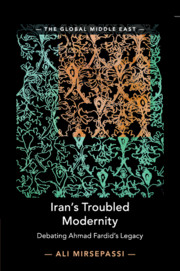
- Publisher:
- Cambridge University Press
- Online publication date:
- December 2018
- Print publication year:
- 2018
- Online ISBN:
- 9781108566124
- Subjects:
- Middle East Studies, Area Studies, History, Middle East History, History of Ideas and Intellectual History
- Series:
- The Global Middle East (5)



